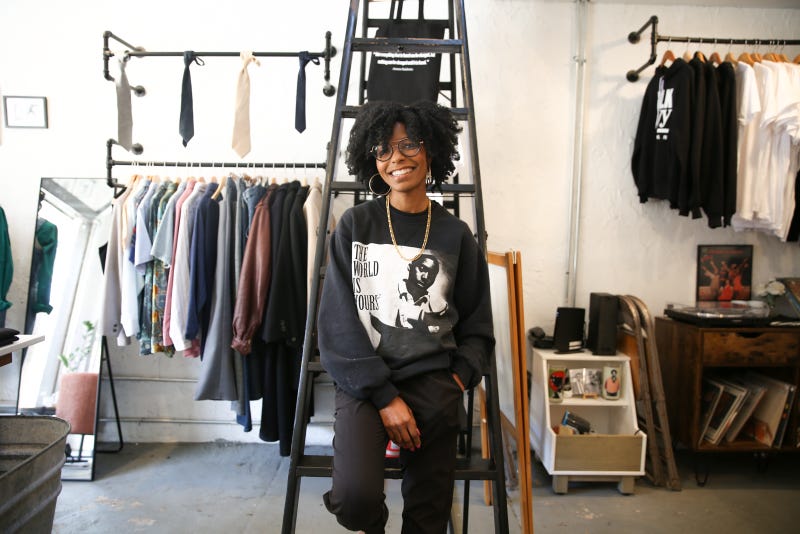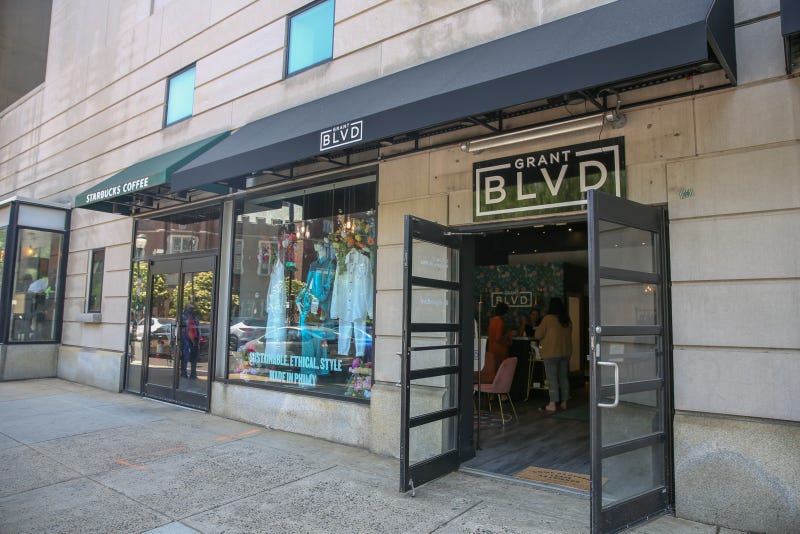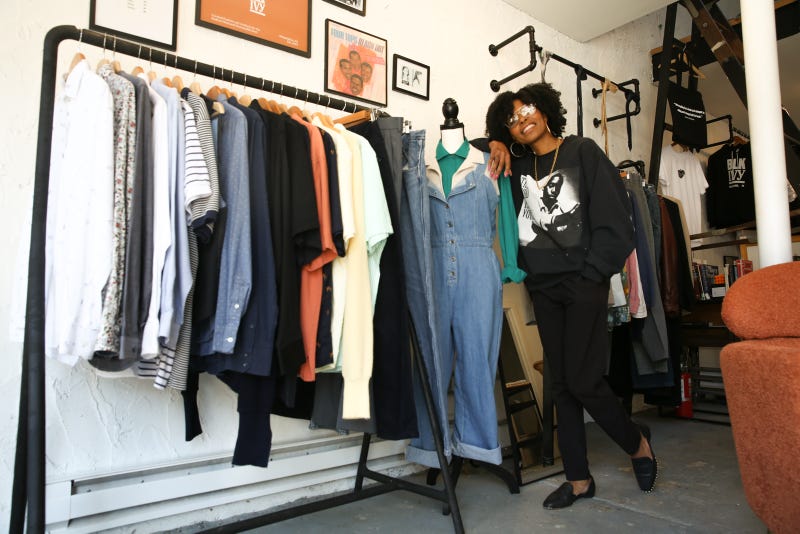
PHILADELPHIA, PA (KYW Newsradio) — Kimberly McGlonn taught for 20 years, using stories of marginalization in American literature to foster conversations about race.
In 2016, she decided on a career change after seeing the documentary 13th which explained how formerly incarcerated Black and brown people struggle financially in the United States. This gave her the idea to start her own fashion brand.
“For me, it was about figuring out, could I use fashion as a vehicle for creating living wage work for people who were really in many ways persistently shut out of economic opportunity,” McGlonn said.
In 2020, McGlonn opened Grant Blvd, an ethical and sustainable clothing company. It originally opened on Lancaster Avenue in Philadelphia, but recently moved to the Shop Penn stores at 34th and Walnut.
Earlier this year, she opened a second store, Blk Ivy, at Grant Blvd’s original location. It’s a thrift store based on the styles of the Civil Rights Era. Both stores are her way of showing that fashion and activism belong together.
“Our closets are pieces that we can pass on to other people as statements of our values,” McGlonn said. “If they’re designed well, they can align with an expression of our identities.”
Grant Blvd is the country’s first Black-owned B Corp in the fashion industry. B Corps, or benefit corporations, prioritize people over profit and are evaluated based on their treatment of employees and involvement with their community and environment.

B Lab, the company that certifies B Corps, is based in Paoli, Pennsylvania. They started in 2006 by reaching out to small Philly businesses who wanted to “wear the B.”
“B encompasses something bigger, because it shows you that the whole company is trying to structure itself in a humane and socially responsible way, rather than just the product being sourced a certain way,” said Lynne Andersson, an associate professor at Temple University’s Fox School of Business, who has worked closely with the B Lab team.
Grant Blvd was certified as a B Corp for its mission as a fair chance hiring company, and for its emphasis on using sustainable materials and pricing transparency.
“We're imagining a new kind of luxury, which is where you have the means to take care of other people and take care of the planet's finite resources, and use that to create a conversation about a new kind of legacy,” McGlonn said.
And sometimes, a new legacy can be made from something old.
McGlonn’s newest store, Blk Ivy is what she calls a “shoppable museum.” It’s a thrift store inspired by civil rights era leaders like the Black Panthers, Coretta Scott King, and Nina Simone.

“We've always been experimenting with time travel,” she said. “What I want to do is make that time travel really rooted in and align with the conversation I hope more of us are having, which is about how we're really standing on some really interesting precipices when it comes to the preservation of civil rights.”
Blk Ivy draws on the Black Ivy fashion movement, which is rooted in jazz and Black men’s adaptation of white prep culture in Ivy League schools during the 1950s and 60s.
They wore a lot of colors, sweaters, slacks, and meaningful pins as a way to stand out but still blend in, said Farai Simoyi, director of the fashion design program at Thomas Jefferson University.
“Because we were always seen as a target and dangerous, you had to show off,” she added. “Even if you didn't have the money or come from a background of being educated, you had to show that you were because the better dressed you looked, the less of a threat you were to white people.”
Simoyi commends McGlonn for the work she’s doing in creating a space for Black designers and trying to better a traditionally exploitative industry.
“She’s making a statement that fashion is activism and fashion belongs in this space,” she said. “But how can we continue to push the envelope and make it better?”
Hear more about sustainable fashion and the history of Black fashion on The Jawncast. Listen in the player below, the Audacy app, or wherever you get podcasts.
